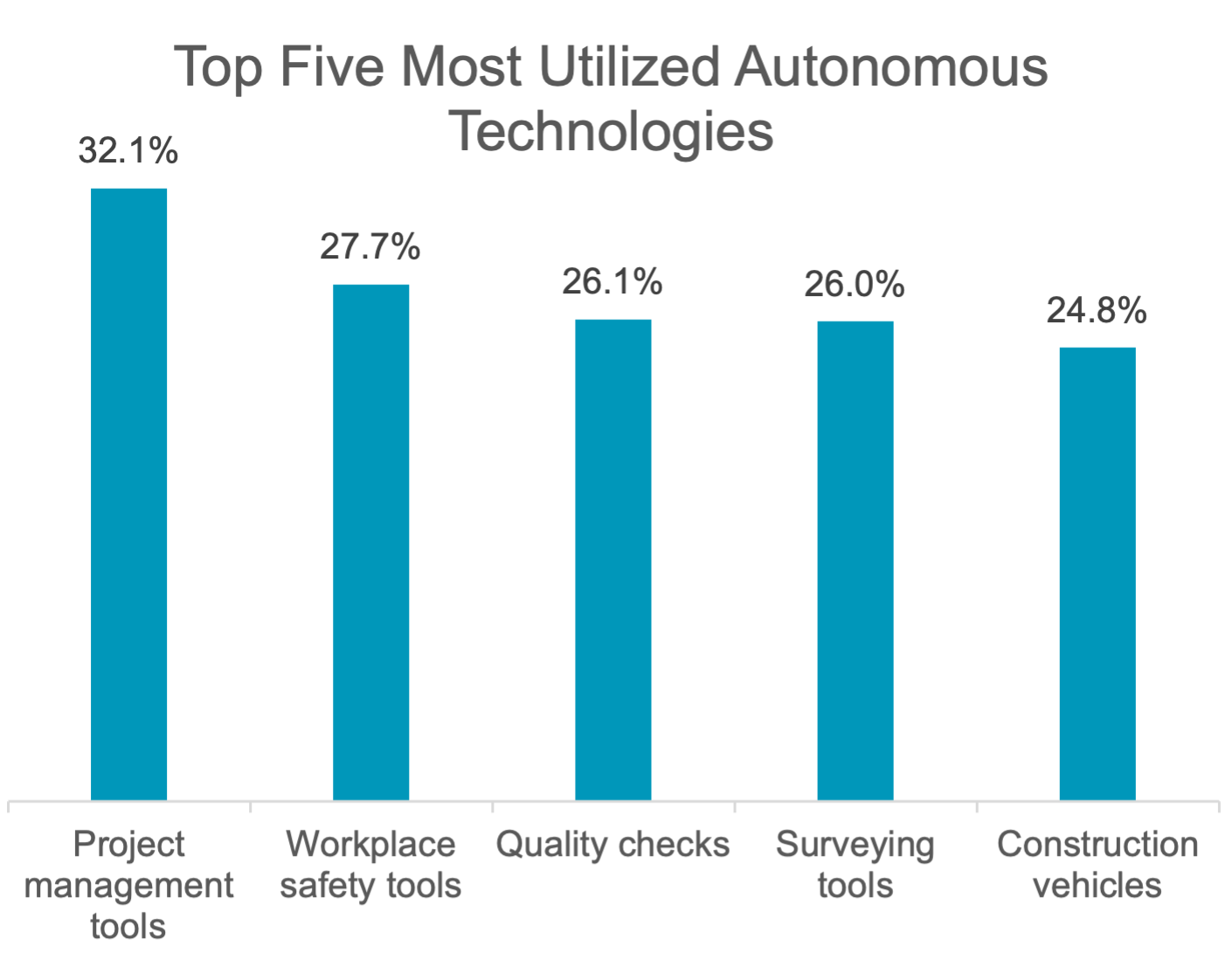Construction Embracing Autonomous Tech, but Disconnects Exist

Construction firms have adopted autonomous technology to address
business challenges, with 84% of technology decision-makers in general
contracting firms adopting some form of autonomous technology in the past year.
However, a disconnect in the industry's understanding of the technology, its
application, and benefits will hinder optimization if not addressed.
The industry is looking at autonomous technology as one of the most
promising solutions to mitigate challenges like supply chain,
productivity/efficiency, and labor shortages. The study shows that construction
firms are turning to technology to help mitigate and manage challenges, many of
which have been exacerbated by the economic instability of the past few years.
Respondents cited operational issues including supply chain,
productivity/efficiency, and labor shortages as the most pressing challenges
near-term, while driving new business/growth and managing ESG regulations and
programs were ranked as top concerns over the next three to five years. More
than 80% of global respondents stated that their top three challenges represent
a “moderate to significant” bottom-line impact on their
business.
Among the autonomous technologies used, almost half are partially or
conditionally autonomous. Project management was cited as the most popular
application (32%) followed closely by workplace safety (28%), quality control
(26%), surveying (26%) and vehicle operation, document management and verification/project
inspection (all at 25%). However, firms appear to have trouble identifying the
best autonomous or automated technology to solve their specific challenges and
pain points. For instance, among survey respondents who stated that improving
supply chain management is a top priority, only 28% reported an investment in
autonomous monitoring technology, one of the top reported technologies that aid
in this area.
Additionally, 37% of respondents cited fully autonomous robotics to
drive sustainability benefits as a leading priority in the next 3 to 5 years,
yet only 17% are investing in this type of technology. This, says the company,
indicates that while construction firms are reporting clear benefits across key
business areas, their use of autonomous solutions is not always aligned to
their most pressing challenges.
Autonomous technology can make job sites safer and more efficient
while managing the gap between data created from a project and the data
actually used to find meaningful insights and generate opportunities. Thomas
Harring, president of Hexagon’s Geosystems division, stated that
"Construction firms are turning to autonomous solutions to mitigate risks
better and improve the effectiveness of operations, which are both key to
overcoming the productivity, sustainability and profitability issues they face
every day."
Harring explained that these digital solutions can be leveraged to
make jobsites safer and more efficient while accelerating innovation and
maintaining business resiliency. He believes that "the firms that will
redefine this industry are no longer defining themselves as construction
companies but rather as hybrid companies with technology, engineering and
construction at their core — and autonomous technology will play a major role
in this evolution."











